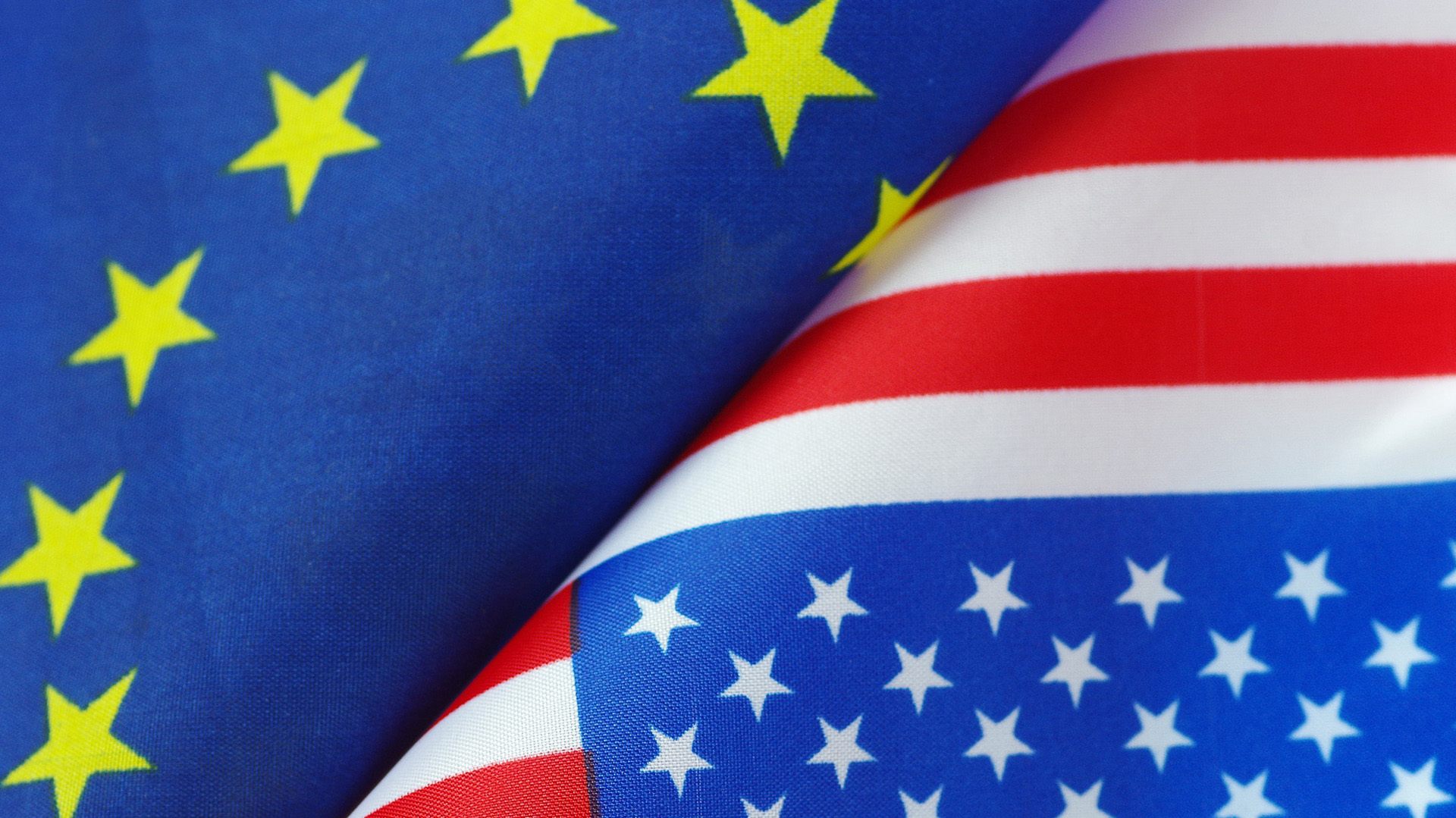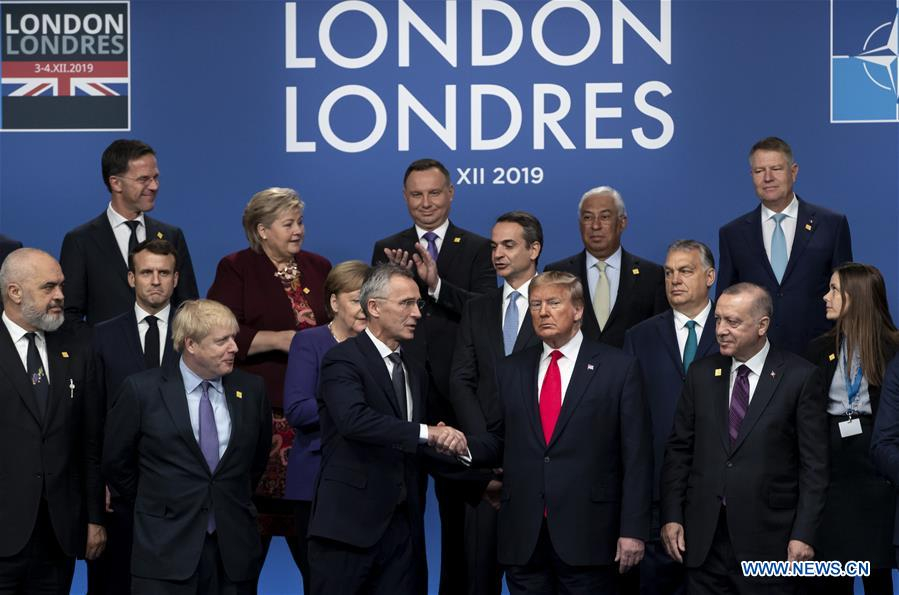
Editor's note: Liu Kun is a journalist with China Plus and former Washington correspondent of CRI. The article reflects the author's opinions and not necessarily the views of CGTN.
Europe, in general, breathed a sigh of relief following President Joe Biden's election into the White House. Hopes for a stronger U.S.-European Union (EU) alliance had been rising across the Atlantic, especially on the premise of Biden and his foreign policy team reiterating the U.S.' aim to reimagine the transatlantic alliance for today's world.
Biden is correct in identifying the evolving external environment for the U.S.-EU relationship. But the inconvenient truth he also needs to acknowledge is that neither of the participants is what they were four years ago. The EU jubilation over Biden's victory might have come too soon.
In 1987, the publication of Yale historian Paul Kennedy's "The Rise and Fall of the Great Powers" inaugurated the debate on America's decline. Measuring one country's decline is a tricky business, but a central indicator is its economic size in relation to other powers.
World Bank data shows that from 1960 to 2019, U.S. GDP grew 39 times bigger, but the world grew close to 88 times – more than double that of the Americans. The U.S.' economic power has been growing in absolute terms, but the country has been losing its competitive edge against others.
The Donald Trump phenomenon made America's relative decline even more perceptible. Popularizing the theory that "I am defending an America that's being duped internationally," Trumpism helped Republicans draw a significant portion of loyalists from the American population.
But the former president's big stick that was pointed at the world was essentially a mirror of the country's inner fear: the situation at home is worsening. On top of that, in 2020 alone, how the COVID-19 pandemic was handled in the country further raised doubts about American exceptionalism at home and abroad.
While America's problem in fortifying the security bloc across the Atlantic it anchored after World War Two lies in its capability, the EU's problem is related more to its willingness.
Since 2017, Jean-Claude Juncker, Emmanuel Macron, Angela Merkel, Theresa May - one after another, European leaders went to Washington and stumbled to pacify a disruptive American government, only to find themselves in embarrassing public disagreement with Trump.
The former American president not only attacked the North Atlantic Treaty Organization (NATO) - the fundamental structure of transatlantic alliance - but also withdrew from virtually all multinational agreements recently championed by the EU, such as the Iran nuclear deal and the Paris climate agreement.
Undoubtedly, Trump's four years in the White House tested Europe's patience towards its long-time ally. But perhaps what's more nightmarish for European leaders is the ideology embodied in Trumpism: isolationism, unilateralism, nationalism, to name just a few.

NATO leaders after a group photo at NATO Summit in London, UK, December 4, 2019. /Xinhua
NATO leaders after a group photo at NATO Summit in London, UK, December 4, 2019. /Xinhua
To borrow European Council President Charles Michel's words in a speech delivered at the Bruegel Institute think tank in September 2020, the EU "cannot ignore an increasing number of geopolitical choices that run contrary to Europe's interests."
It remains unclear whether Trumpism will be an aberration in American history or a prelude for what's yet to come. But one thing that probably keeps EU leaders up at night is wondering whether America is struggling with its belief in principles that Europeans hold dear. The question of whether America can be trusted again is resounding to many EU leaders right now.
It is therefore not surprising that voices stressing an independent foreign policy for the EU were heard more frequently in the past few years among European leaders. In December 2019, during her first Brussels press conference since taking over from Jean-Claude Juncker, European Commission President Ursula von der Leyen said she will lead a "geopolitical commission," pointing toward the EU as a geopolitical actor without actually being a state.
In his speech delivered at the Bruegel Institute, Michel declared that "strategic autonomy" is the aim of the current generation in Europe. And a day after Joe Biden took office, Merkel told the press that "Europe will, on the whole, have to take on more responsibility, both in military and diplomatic terms," and that "both Germany and the EU are prepared to do so."
To fulfill this ambition, debates are now being held within the EU on how it can build up its defense, one area in which it obviously lacks the capabilities once stripped of American help. In the wake of a leadership vacuum created by a wobbling America in the past few years, it looks like Europeans are rethinking their role in today's world.
One final but more urgent issue the U.S. and the EU have yet to agree upon is a China policy. Viewing China's rise as a challenge to its primacy globally, the Trump administration launched a determined tech and trade war against China. The containment of China is likely to continue during the Biden era, and the U.S. has already signaled its intent to recruit Europe into its camp.
How was that signal received in Europe? Despite a clear Twitter warning from Biden's National Security Advisor Jake Sullivan, the EU went on to complete its negotiations with China on an investment treaty. At the recent 2021 Davos World Economic Forum, Merkel also expressed wariness about the U.S.' suggestion of grouping together against China by publicly saying that she hopes to "avoid the building of blocs."
The U.S. and the EU appear to be at odds with each other currently regarding their China interests, particularly on the economic and trade front. The power balance between China and the U.S. remains the question on everybody's lips, and the U.S. and the EU clearly do not have a satisfactory answer yet.
When NATO was founded in 1949, the U.S. was the single most powerful country in the world, and Europe has followed almost in lockstep with American foreign policy since then. But the intricate interests the EU has in the multipolar world today have made the old doctrine of simply teaming up with America increasingly less convincing.
(If you want to contribute and have specific expertise, please contact us at opinions@cgtn.com)

